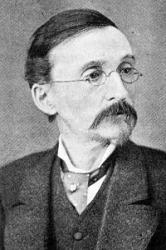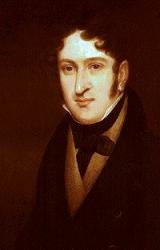Planning worship?
Check out our sister site, ZeteoSearch.org,
for 20+ additional resources related to your search.
- |
User Links
Person Results
David Emlyn Evans

1843 - 1913 Person Name: David Enlyn Evans Arranger of "MADRID" in Hymns to the Living God Born: September 21, 1843, Penralltwen, near Castellnewydd Emlyn (Castle Emlyn), Carmarthenshire, Wales.
Died: January 19, 1913, Cemmaes, Montgomeryshire.
Buried: Llandyfriog (near Newcastle Emlyn), Wales.
Evans was a composer, adjudicator, conductor, editor, critic, music historian and entrepreneur. Frequently irascible, especially in his last years which he spent in severe and immobilizing pain, he was one of the foremost figures in Welsh musical life in the period leading up to World War I.
He was self taught, via the most popular of all Welsh music publications, John Mills’ Gramadeg Cerddoriaeth, and the two parts of Thomas Williams’ Ceinion Cerddoriaeth (Musical Gems, 1852) with its 200 hymn tunes and seventy anthems and choruses. Later, formal lessons by a music teacher, Mr. Hughes of Llechryd, a few miles from his home, gave him a firmer grounding in the old notation used until 1858. The same year, in Bridgend, he sang his first song in public, conducted his first choir and won his first prize for composition. In 1863 he moved to Cheltenham, where he worked as a shop assistant and received further lessons in piano and organ. He became a commercial traveler in 1871, and traveled in this capacity for the next 20 years the length and breadth of Wales, making contacts and observing the growth of music throughout Wales. It was probably during his overnight stays in hotels that most of his musical compositions were created at the end of his working day. Throughout this period, 66 of his pieces won prizes in competitions in Wales, England and America. Evans’s works include:
Y Caniedydd Cynulleidfaol, 1895 (editor)
--www.hymntime.com/tch
David Emlyn Evans
John Henry Yates
1837 - 1900 Person Name: John H. Yates Author of "Holy Spirit, lead us now" in The Song Companion to the Scriptures Rev. John H. Yates, was born in Batavia, N. Y., November 31, 1837. He was educated at the Batavia Union School, but at the age of eighteen was forced to engage in business as a clerk to help maintain his aged parents. For several years he was with his brother, Thomas Yates, in the shoe business; afterwards, for seven years, salesman in G. B. Worthington's hardware store. In 1871 he took charge of the fancy goods department in E. L. & G. D. Kenyon's double store and remained there fifteen years. In 1886 he was called to be local editor of the Progressive Batavian, and filled the position nearly ten years. When twenty-one years of age Mr. Yates was licensed to preach in the Methodist church, but was not ordained until 1897. For nearly seven years now he has been pastor of the Free Will Baptist church at West Bethany. At about the age of twenty, Mr. Yates began writing poetry at the solicitation of his mother, and very soon his ballads and hymns were printed and sung all over the land. In 1891, Ira D. Sankey, the famous singer, engaged Mr. Yates to write gospel hymns for him, solely; he was led to do this because of the wonderful success of Mr. Yates's old man ballad, the "Model Church," which has been sung all over the world. After the contract with Mr. Sankey. the following hymns soon appeared from the pen of Mr. Yates: "Harbor Bell," "Faith is the Victory," "Beautiful Hills," "Our Name's in Heaven," and about twenty others. In December, 1897, Mr. Yates issued a volume of ballads and poems, a book of 117 poems and 226 pages, which are now nearly all sold. On the occasion of the dedication of the old land office in 1894, Mr. Yates wrote the dedicatory poem, "Our Ancient Landmark," a production of unusual merit.
From Our County and it's people: descriptive work on Genesee County, New York, edited by: F. W. Beers (J.W. Vose & Co., Publishers, Syracuse, N. Y. 1890)
John Henry Yates
Benjamin H. Hall
1830 - 1893 Author of "Lord of Life, of Love, of Light" in The Hymnal and Order of Service
Benjamin H. Hall
Randall Keith DeBruyn
b. 1947 Person Name: Randall DeBruyn, b. 1947 Arranger of "MADRID" in Glory and Praise (3rd. ed.)
Randall Keith DeBruyn
Frances C. Van Alstyne
1820 - 1915 Person Name: F. C. Van Alstine Author of "Life has many a pleasant hour" in The Students' Hymnal See Crosby, Fanny, 1820-1915
Frances C. Van Alstyne
Barbara Stoddart
1865 - 1915 Person Name: Barbara W. Stoddart Author of "Blessèd Lamb of Calvary" in The Cyber Hymnal
Barbara Stoddart
Elizabeth Parson
1812 - 1873 Person Name: Elisabeth Parson Author of "Jesus, we love to meet" in The Presbyterian Book of Praise Parson, Elizabeth, nee Hooker, daughter of the Rev. W. Rooker (for nearly fifty years Congregational Minister at Tavistock), was born at Tavistock, June 5, 1812, and married in 1844 to Mr. T. Edgecombe Parson. She died at Plymouth in 1873. Previous to her marriage (from 1840 to 1844) Mrs. Parson conducted a class for young men and women in the vestry of her father's chapel on Sunday evenings, and to which was given the name of the “Willing Class," because those who came, came "willingly." For this class she wrote from 1840 to 1844 several hymns, some of which came into use through various collections including the Baptist Psalms & Hymns, 1858, and others at a later date. A few years ago 18 of these hymns were collected, and printed for private circulation by one of her old scholars as Willing Class Hymns. The greater part of these hymns have found a place in children's hymn-books, some fifteen collections having one or more therein. For tenderness, "Saviour, round Thy footstool bending," is the most pathetic; and for praise, "Angels round the throne are praising," and "What shall we render?" the most joyous. Mrs. Parson also wrote a few hymns for adults, which have been printed for private use only. In addition to those hymns there are also the following in common use:—
1. Far above the lofty sky. Praise.
2. Father of spirits, we entreat. New Year.
3. Hark ! a distant voice is calling. Missions.
4. Hark ! 'tis the Saviour calls. The Invitation.
5. Is there one heart, dear Saviour here? Passiontide.
6. Jesus, we love to meet. Sunday.
7. Lord, we bend before Thee now. Home Missions, or Prayer Meetings.
8. Lord, we stand before Thy throne. This is an altered form of No. 7.
9. Our Saviour's voice is soft and sweet. Missions.
10. This is God's most holy day. Sunday.
11. Youthful, weak, and unprotected. Self Dedication to Christ.
-- John Julian, Dictionary of Hymnology (1907)
Elizabeth Parson
Mrs. R. N. Turner
1857 - 1957 Author of "Ascension Hymn" in Song Worship for Sunday Schools Fronie Bell Turner, married to Rev. R. N. Turner, pastor in the Protestant Episcopal Church.
Mrs. R. N. Turner
Henry R. Bishop

1786 - 1855 Composer (attributed to) of "MADRID" in Celebremos Su Gloria Bishop, Henry Rowley, was born at London, Nov. 18, 1786, and died at London, April 30, 1855. See a full notice in the Dictionary of Nat. Biog., v., 91. From 1840 he was occasional and from 1843 to 1848 sole conductor of the Antient Concerts. Of his Twelve Corales...as sung at the Concerts of Ancient Music, for which (with Words expressly written to them) they were adapted and arranged by Sir Henry R. Bishop, 1844 (B. M. copy is H. 878), some are fairly literal translations from the German, others have no connection with their nominal originals. Three were noted in this Dictionary, but their source not having been traced in 1892, we now subjoin them:—
1. Behold, how glorious is yon sky, p. 127, ii. This is from "Wie herrlich ist die neue Welt" in C. H. Graun's oratorio Der Tod Jesu, 1756 (B. M. copy, 11. 1805, catalogued as 1766), the words being by Karl Wilhelm Ramler, b. Feb. 25, 1725, at Colberg, in Pomerania; 1748, Professor of Literature at the Cadet School in Berlin; d. at Berlin, April 11, 1798.
2. God is our Refuge in distress, Our Shield, p. 325, i.
3. O let us praise the Lord, With hearts of true devotion, p. 963, ii., No. 4. The Winchester Hymn Book, 1857, alters stanza i., the original line 1. 3, 4 being:—
"Whose spirit roams abroad,
To calm life's troubled ocean."
Another fairly close version is,"Wake, O wake! a voice is crying," from "Wachet auf," p. 805, ii. [Rev. James Mearns, M.A.]
--John Julian, Dictionary of Hymnology, New Supplement (1907)
Henry R. Bishop


 My Starred Hymns
My Starred Hymns


